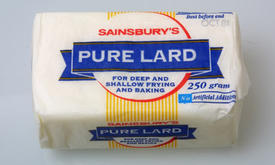Garmin 610

Kupe
Posts: 758 Member
Just took my new forerunner 610 out its first run. Ran the same route I normally run. I ran with a hrm and I have set my correct weight, however when completing the run and checking calorie expenditure it was a good few hundred calories lighter than what I normally record.
So the question is, is it more accurate now due to the hrm or is garmin being a bit tight with the calories?
Any thoughts would be appreciated.
By the way, what a great watch. Very glad I bought it.
So the question is, is it more accurate now due to the hrm or is garmin being a bit tight with the calories?
Any thoughts would be appreciated.
By the way, what a great watch. Very glad I bought it.
0
Replies
-
I have had my Garmin 610 for about a month and I really like it also.
The newer Garmins use a different calorie algorithm than most others. It is from Firstbeat and does not calculate from simple heartrate but rather from heart rate variability. It is supposed to be the most accurate method available but does give lower counts than other methods. When I am running (178 lbs) I'll usually get between 105 to 115 cal per mile where with other methods I get over 130 per mile.
Read the white papers here for more info. http://www.firstbeat.fi/physiology/white-papers
Also, the garmins with firstbeat continually collect and analyze your data and keep an updated athlete profile inside the watch based on that data. From my experience it takes about a week's worth of runs before enough data is collected for the calorie burns to be accurate and reasonably consistent.0 -
There's a pretty good breakdown of the different methods Garmin have used fr calorie calculation here:
http://www.dcrainmaker.com/2010/11/how-calorie-measurement-works-on-garmin.html
iirc the 610 uses the firstbeat algorithgms, which are supposed to be within about 10% - not bad really, and about as close as you'll get without the individual testing and custom-programming (like the edge 5X0/8X0 series of bike computers... I've got the 800 and done the Newleaf Torture Test (it's actually just a pretty bog standard Vo2Max test, but with the data broken down into 10bpm data-buckets rather than the usual HR zone approach))
Garmin were basically panned for being over-generous with the pre 2010 kit, and certainly out of the box, the 800 - as compared to the 800+Newleaf Profile comes out a little stingy (at least for my personal metabolism) - though I'm fairly atypical, being something of a low-beater HR wise (mainly via genetic predisposition - any HR reading over 168 either means the Monitor belt has glitched or I've stroked :laugh:)0 -
You and me both. The highest I have gotten in the past two years at the end of races was 168.any HR reading over 168 either means the Monitor belt has glitched or I've stroked :laugh:)0 -
I have had my Garmin 610 for about a month and I really like it also.
The newer Garmins use a different calorie algorithm than most others. It is from Firstbeat and does not calculate from simple heartrate but rather from heart rate variability. It is supposed to be the most accurate method available but does give lower counts than other methods. When I am running (178 lbs) I'll usually get between 105 to 115 cal per mile where with other methods I get over 130 per mile.
Read the white papers here for more info. http://www.firstbeat.fi/physiology/white-papers
Also, the garmins with firstbeat continually collect and analyze your data and keep an updated athlete profile inside the watch based on that data. From my experience it takes about a week's worth of runs before enough data is collected for the calorie burns to be accurate and reasonably consistent.
^^^ This
The 610 is reputed to be one of the most accurate models on the market (I love mine!)0
This discussion has been closed.
Categories
- All Categories
- 1.4M Health, Wellness and Goals
- 397K Introduce Yourself
- 44.2K Getting Started
- 260.9K Health and Weight Loss
- 176.3K Food and Nutrition
- 47.6K Recipes
- 232.8K Fitness and Exercise
- 456 Sleep, Mindfulness and Overall Wellness
- 6.5K Goal: Maintaining Weight
- 8.7K Goal: Gaining Weight and Body Building
- 153.3K Motivation and Support
- 8.3K Challenges
- 1.3K Debate Club
- 96.5K Chit-Chat
- 2.6K Fun and Games
- 4.5K MyFitnessPal Information
- 16 News and Announcements
- 18 MyFitnessPal Academy
- 1.4K Feature Suggestions and Ideas
- 3.1K MyFitnessPal Tech Support Questions


